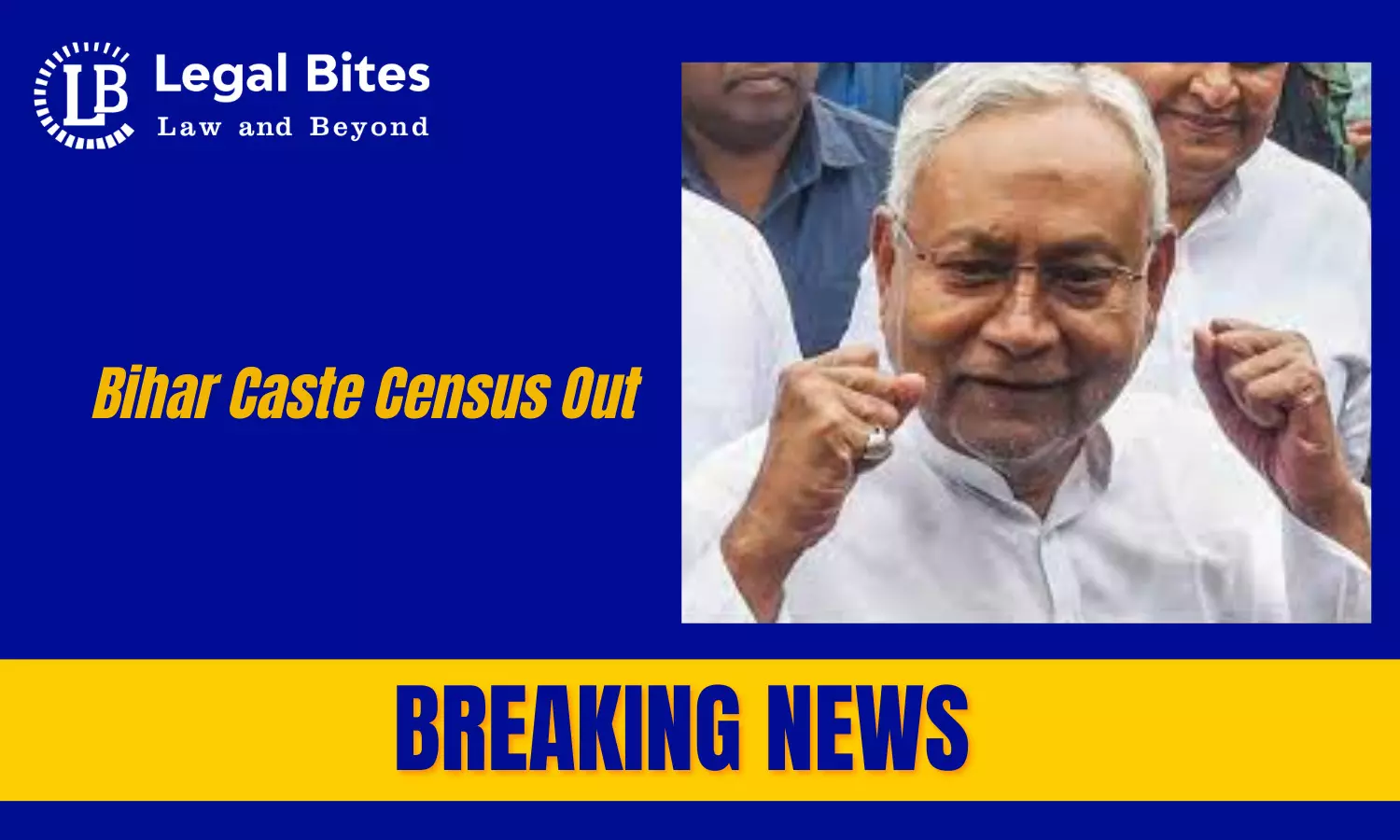Bihar Caste Census Out: 36% Falls under the Extremely Backward Classes
According to the report, it reveals that 36 percent of the state's population belongs to the Extremely Backward Classes, 27.1 percent are classified as Backward Classes

Bihar Caste Census Out: 36% Falls under the Extremely Backward Classes
Bihar has recently taken the groundbreaking step of releasing data from a caste-based survey. According to the report, it reveals that 36 percent of the state's population belongs to the Extremely Backward Classes, 27.1 percent are classified as Backward Classes, 19.7 percent are from Scheduled Castes, and 1.7 percent come from Scheduled Tribes. The remaining 15.5 percent represents the general population. It's important to note that Bihar's total population exceeds 13.1 crore.
Furthermore, the survey highlights that the Yadav community, to which Deputy Chief Minister Tejashwi Yadav belongs, is the largest subgroup among the OBC categories, making up 14.27 percent of the OBC population.
The release of this report is expected to stir up political controversies and may lead to demands for an increase in quotas for OBCs, which is currently capped at 27 percent. According to this data, which has come out just months before the 2024 Lok Sabha election, OBCs now constitute a significant 63.1 percent of the state's population.
The report highlights the significant numerical strength and political influence of OBCs (Other Backward Classes) in Bihar.
Immediately after the data was made public, Chief Minister Nitish Kumar took to X (formerly Twitter) to express his appreciation for releasing the data on the occasion of Mahatma Gandhi's birth anniversary.
Nitish Kumar announced that a meeting involving nine parties in the Bihar Assembly, including the Deputy Chief Minister's Rashtriya Janata Dal and the BJP, who are now rivals, will be convened to discuss the findings of the caste-based census in Bihar. They will be briefed about the results, he stated.
Mr. Yadav described the report as a significant turning point and the outcome of many years of struggle. He emphasized that both government policies and intentions should now take this data into account.
Lalu Prasad Yadav, Mr. Yadav's father and the leader of their political party, also shared his thoughts on the release. He praised the timing of the release on Gandhi Jayanti and mentioned overcoming various obstacles and conspiracies to make the caste-based survey data available.
In contrast, the BJP's response has been predictably critical. Giriraj Singh, a Union Minister and Lok Sabha MP from Bihar, criticized the caste-based survey report as a mere show. He argued that the survey should have focused on development rather than caste, and he expressed concern that this survey could create doubts among the people.
In August, following the completion of the exercise, Mr. Kumar emphasized that the survey would be "beneficial for all" and would "facilitate the progress of various segments of society, including those who are disadvantaged."
During the same month, when questioned about certain political parties opposing the idea of a caste-based headcount, the Chief Minister stated that the exercise had been initiated with the support of all state parties. He implied that this cross-party support included the BJP, even though they had previously been allies-turned-rivals. Earlier in the year, former Union Minister Upendra Kushwaha, a senior leader from Mr. Kumar's Janata Dal (United), criticized his party's former allies, suggesting that they should address this issue within their own party.
The opposition has been urging the central government to conduct a nationwide caste-based survey or headcount, and this demand has been highlighted as a key request by the mega INDIA bloc. However, there are also divisions within the group regarding this issue after objections were raised by the Trinamool Congress.
The release of this data coincides with the ongoing hearings in the Supreme Court regarding petitions challenging a judgment by the Patna High Court that paved the way for this controversial "caste-based headcount." Nonetheless, the court declined to issue an interim stay on the matter unless the critics could establish a prima facie case.
It's important to note that the decision to carry out a caste survey was made by the Bihar government in June of the previous year. The Chief Minister has consistently stated that the state is not conducting a census, as initially asserted by the central government to the Supreme Court, which later reversed its position. Instead, the state is only collecting data on economic status and caste for the purpose of targeted development initiatives.
Important Links

